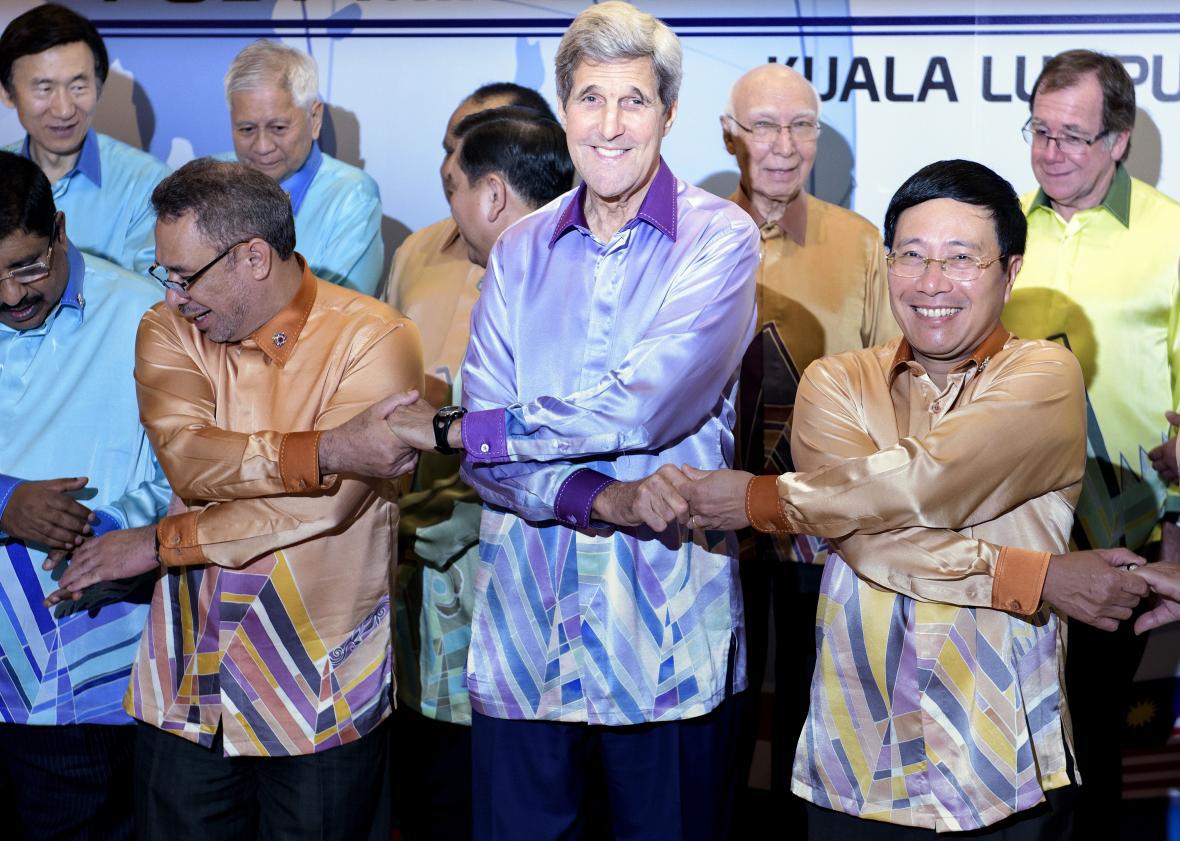John Kerry wants China to cut out its ongoing program of building artificial islands in the South China Sea, calling on Beijing to halt its “problematic actions” at a meeting of the Association of South East Asian States in Kuala Lumpur. China’s neighbors, as well as the United States, have expressed alarm at China’s land reclamation program, which has already constructed nearly 2,000 acres of new land, much of it on the disputed Spratly islands.
Beijing claims nearly the entire South China Sea as Chinese maritime territory, contradicting competing claims by countries including Brunei, Malaysia, the Philippines, and Vietnam. Though China denies it, its neighbors believe the program is part of an effort to militarize the region and bolster China’s territorial claims.
China calls these fears overblown and says it’s all finished building islands. That hasn’t comforted governments like the Philippines, which says that just means China has completed the first part of its project and is moving on to “phase 2,” which is building infrastructure on them. Recent satellite imagery shows what appears to be a runway being constructed on one of the islands in the Spratlys.
While U.S. officials have made clear they don’t like China’s menacing sand castles, the question is what they’re going to do about it. Secretary of State Ashton Carter recently said that while the U.S. is looking to resolve the dispute amicably, it won’t tolerate any impediment to freedom of navigation in the region. Still, according to a recent article in Politico, the White House, which wants to avoid openly antagonizing China, is in a dispute with naval commanders who want to sail U.S. Navy ships into the disputed area as a demonstration of that freedom.
The dispute comes at a time when Washington and Beijing are also at odds over espionage cases and the Obama administration is looking for ways to retaliate against Chinese cyberattacks. This has led some hawks, notably Sen. Tom Cotton, to ask whether it’s time to start describing China as an “adversary” rather than a competitor. But the relationship remains complex and multifaceted: As some tensions are escalating, U.S.-Chinese military cooperation is actually increasing.
The White House clearly still thinks the disputes can be smoothed over, but at the very least, Obama and President Xi Jinping should have quite a bit to talk about when the Chinese leader makes his first state visit to Washington next month.
